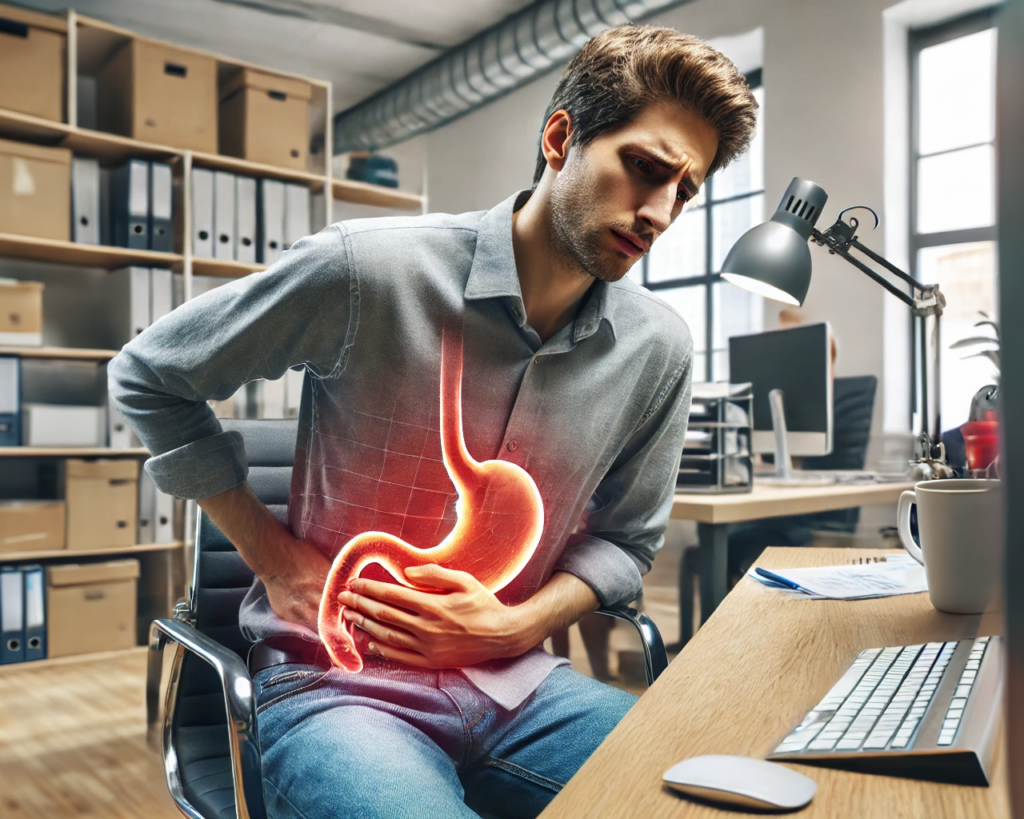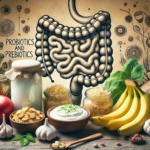👨🏽⚕️What is Gastritis?
In medicine we use the suffix -itis to indicate inflammation: appendicitis, pancreatitis, tendonitis, etc. So plainly said, gastritis is the inflammation of the stomach lining and can be acute (a new thing that just happened) or chronic ( a persistent problem that either keeps coming back or you just have it all the time). Gastritis needs to be diagnosed by a doctor, so if you think you may have gastritis go see your doctor – treatment will depend on the specific cause.
Symptoms of Gastritis
Symptoms range from mild to severe and can be non-specific. They include the following:
- Upper abdominal pain or discomfort: This is the most frequent symptom and can range from a dull ache to a sharp pain.
- Nausea: Feeling sick to your stomach or having the urge to vomit.
- Vomiting: Sometimes with blood, indicating more severe inflammation.
- Bloating: A feeling of fullness or swelling in the abdomen.
- Loss of appetite: Not feeling hungry or a decrease in appetite.
- Indigestion: Also known as dyspepsia, this can include a burning sensation in the stomach or upper abdomen.
- Hiccups: Frequent hiccups can sometimes be a sign.
- Black, tarry stools: This may indicate bleeding in the stomach and is a more serious symptom.
🤔 Why you need to know
Causes of Gastritis
Because gastritis can be caused by various factors including infections (such as H. pylori), long-term use of nonsteroidal anti-inflammatory drugs (NSAIDs), excessive alcohol consumption, stress, and autoimmune disorders.
Complications of Gastritis
Recognizing and managing gastritis is crucial to prevent complications like ulcers and if ignored lone enough, stomach cancer. Practical steps to manage gastritis include avoiding NSAIDs, reducing alcohol intake, managing stress through relaxation techniques, and eating smaller, more frequent meals. Incorporating probiotic-rich foods such as yogurt and fermented vegetables can promote a healthy gut environment. If you suspect an infection, you need to see your doctor for advanced testing and potential treatments options. For example, antibiotics in case of H. pylori.
🧠 Trivia:
In 1984, to prove that Helicobacter pylori (H. pylori) causes gastritis and ulcers, Dr. Barry Marshall intentionally drank a broth containing the bacteria. He developed gastritis, confirmed the presence of H. pylori in his stomach, and then successfully cured himself with antibiotics.



